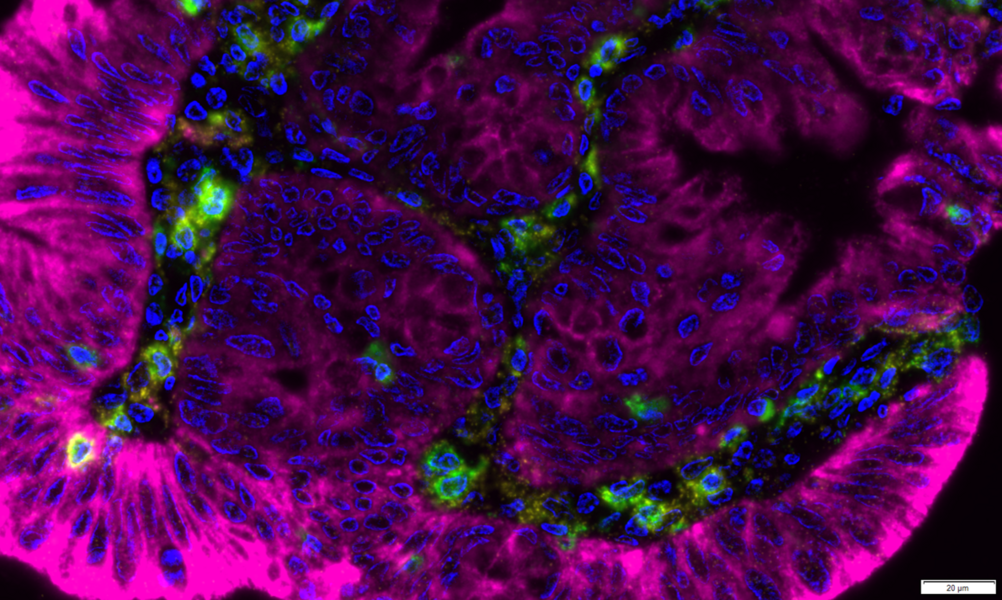New DFG research group investigates interactions between the microbiome and genome in colorectal cancer

A new research group funded by the German Research Foundation (DFG) is investigating the interaction between the gut microbiome, tumor-associated genes, and drugs. The aim is to identify new targets for personalized treatment strategies against colorectal cancer and to transfer findings from basic research into future clinical studies.
The group “Functional Genomics and Microbiomics in Precision Medicine of Colorectal Cancer” is funded in a German-Austrian-Swiss collaboration together with the Swiss National Science Foundation (SNSF). Matthias Ebert, Mannheim Medical Faculty of Heidelberg University, is the spokesperson for the new GenoMiCC* research network. The research group has a special feature: scientists from different fields – microbiome and cancer research – conduct the projects in tandem.
Researchers from NCT Heidelberg, María Paula Roberti and Antonia Schubert, are also involved. María Paula Roberti, head of the subgroup “Translational Research in Immuno-Oncology and the Microbiome” in the clinical cooperation unit “Applied Tumor Immunity” at DKFZ and NCT Heidelberg, is working with Conrad Rauber, Heidelberg University Hospital, how metabolites from intestinal bacteria influence the immune response in liver metastases of colorectal cancer and could thus open up new approaches for immunotherapies. Antonia Schubert, head of the junior research group “Extracellular Vesicles and Molecular Signal Transduction” at NCT Heidelberg, Medical Oncology and DKFZ, and Simone Schürle, ETH Zurich, combine methods of synthetic biology and organ-on-a-chip technologies to develop innovative bacterial companion therapies designed to improve the effectiveness of targeted therapies.
The interdisciplinary collaboration between experts from various research institutions, such as the German Cancer Research Center (DKFZ), the European Molecular Biology Laboratory (EMBL), and the two medical faculties of Heidelberg University, creates ideal conditions for the development of new scientific approaches. Scientists from ETH Zurich, Düsseldorf University Hospital, the University of Basel, and Leiden University are also involved in the research group.
* DFG: FOR 5806: “Functional Genomics and Microbiomics in Precision Medicine of Colorectal Cancer”
Image caption: Immunofluorescence microscopy of colorectal carcinomas shows T-cell infiltration within the tumor microenvironment. Cell nuclei glow blue, CD3⁺ T cells appear green, and PanCK-labeled tumor cells glow pink. In colorectal cancer, a strong T-cell presence often indicates a better prognosis and an improved response to immunotherapy.
Image credit: María Paula Roberti
Further information:
DFG press release
University Hospital Mannheim press release (in German)







